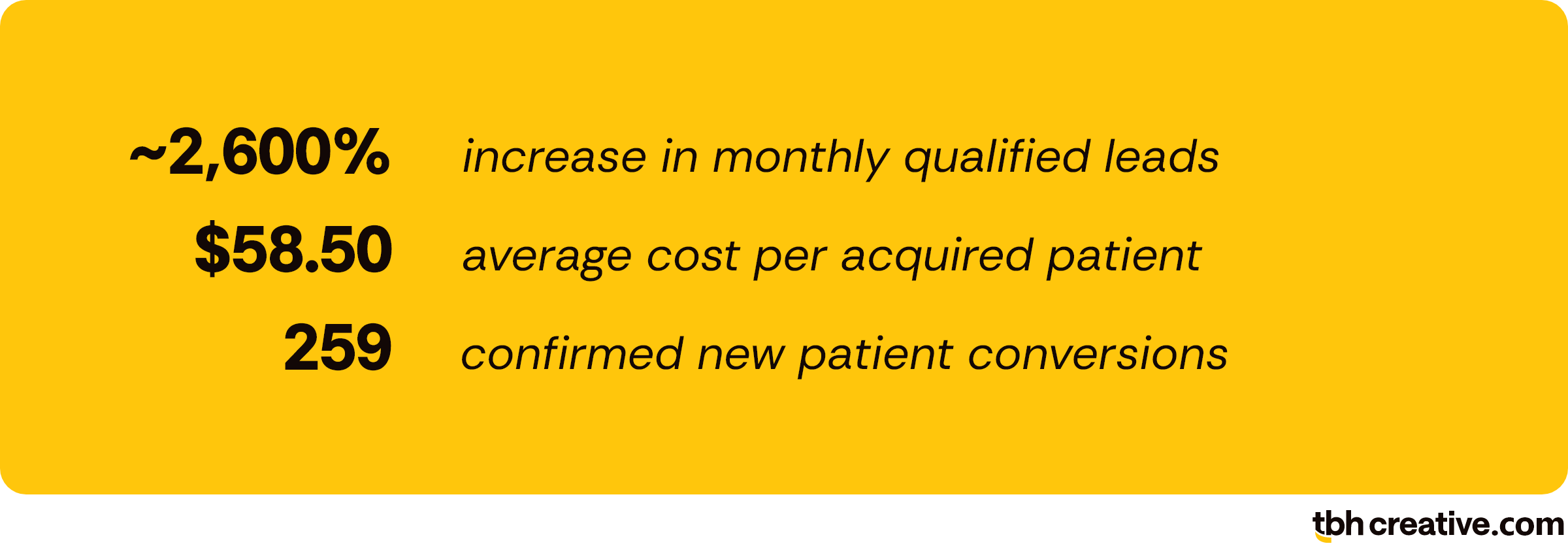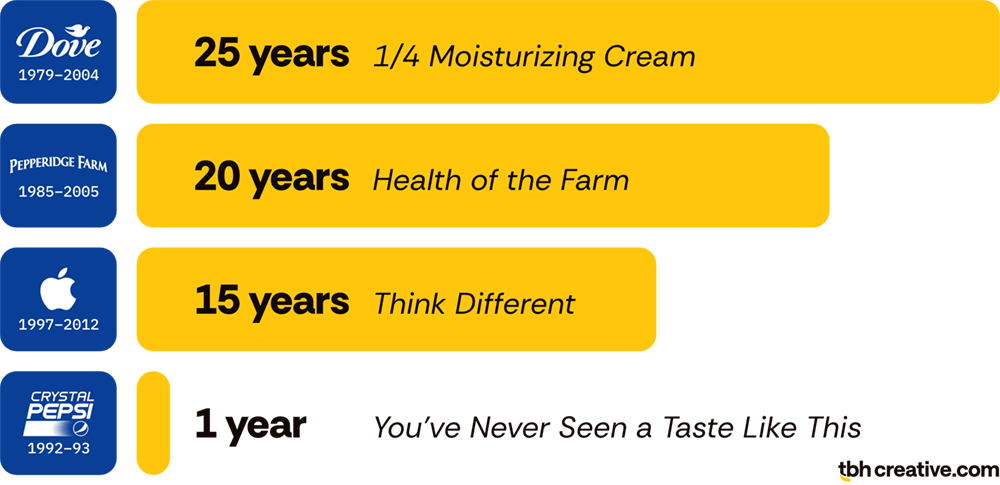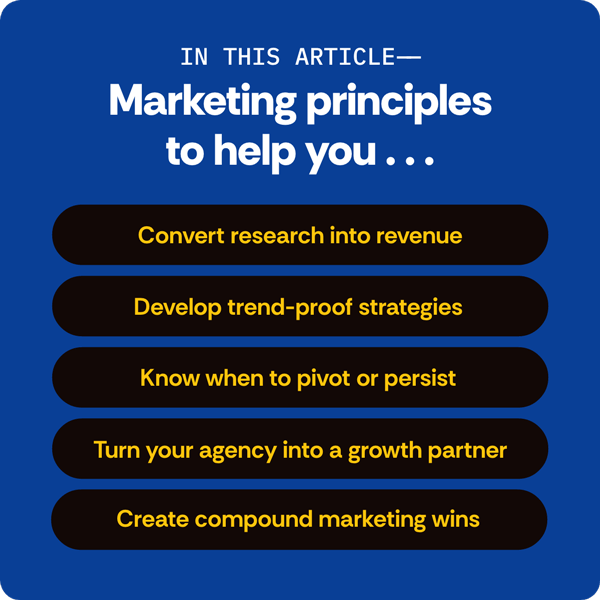When I founded TBH Creative, websites were essentially clickable PDFs and digital marketing was just finding its footing. Today’s marketing teams juggle everything from viral reels to AI-powered campaigns. Yet after 20 years and countless technology shifts, I’ve discovered that solid marketing principles matter more than ever. While the channels for telling our stories have multiplied exponentially, success still comes down to having the right mindset and a solid action plan.
By following these core approaches, we’ve driven success for healthcare organizations navigating complex mergers, manufacturers expanding into new markets, and nonprofits amplifying their mission impact. All of these achievements, and many others, stem from following these five proven principles that blend strategic thinking with measurable results:
- Do your homework; know your data: Gather insights that drive smarter marketing decisions
- Think outcomes, not just tactics: Set clear goals before choosing marketing approaches
- Stay agile to stay relevant; keep what is working: Adapt quickly while maintaining proven successes
- Don’t hire vendors; build partnerships: Transform relationships into collaborative advantages
- Invest in long-term impact: Create integrated strategies that deliver lasting results
Though following these marketing principles is harder than relying on a magical mindset, it’s worth it because they work wonders.
Keep reading to learn why these timeless principles are so effective for getting the best possible marketing results, and discover practical questions you can use to integrate them into your next campaign strategy.
Do your homework; know your data
Understanding the company, subject matter, and audience is key before any “marketing” begins. Without this knowledge to guide the way, marketing efforts are successful by luck or waste time and money.
Interviewing stakeholders, customer service representatives, and buyers in your target audience—at different stages of the customer journey as needed—often yields notes of inspiration that can help every aspect of marketing.
These kinds of insights are invaluable. They can give you an edge over the competition and make it easier for everyone on the marketing team to deliver the best possible work, helping:
- Strategists build campaign plans with greater detail so conversions are higher,
- Designers pick images that better connect with audiences, and
- Writers craft more persuasive advertising copy.
Data is the magic sauce after a plan is in place and activities begin.
Without it, you’re again betting on chance and navigating blind.
The source of a successful marketing plan requires upfront and often tedious research. There is no substitute for it. A prospect who calls a marketing agency and expects immediate answers and recommendations does not understand or appreciate this. A marketing company that offers ideas and recommendations without this step is amateur.
Questions to ask when doing research and looking at metrics:
- What matters about the product/service to buyers? What doesn’t?
- Where is our target audience spending time?
- What is the journey for the buyer to need or want the product?
- Are we tracking metrics that drive real business growth?
- How should we turn the learned data into actions for the next steps?

Case study: Using data to create marketing success
At the start of our engagement with a small specialty healthcare client (12 physicians), TBH Creative’s team focused on lead generation, fixing site errors, enhancing calls-to-action, and adding appointment options based on their goals. While completing this work, we made minor changes based on audience insight data, which paid off—big time!
Within three months, the client saw 1,221 bottom-funnel leads and 259 confirmed patients, with a cost-per-customer of $58.50—previously, they had only 10-20 leads per month. The results show how using data to inform marketing strategy works. By year two, we helped them launch a reimagined website and integrate regular patient education-focused content creation to improve organic SEO results.
As the partnership continues, TBH Creative still uses data insights to understand patients’ needs better and enhance marketing efforts to support their organization’s continued growth, whether the marketing initiative is a quick-win project or part of ongoing work supporting a more extensive campaign.
In just 90 days, our data-driven approach delivered:

Think outcomes, not just tactics
Following a marketing trend can be tempting (who doesn’t want to go viral on TikTok?), but don’t get lost in the tactics before you’re clear on your destination. Effective marketing requires setting big-picture goals. Where do you want to be in a year? Five years?
It’s smart and logical, not magic.
Long-term outcomes keep you focused on impactful priorities, not just checking off tasks and hopping on the latest marketing bandwagon. This approach helps you prioritize ideas and align your efforts with your goals. A marketing strategy focused on business goals, fueled by research and buyer insights, and monitored by data is a path toward success.
Questions to ask yourself about your marketing tactics:
- Does this tactic reach our buyer or audience target?
- Does this tactic directly support a specific business objective?
- What is the measurable outcome of this tactic, and how will we track its impact?
- Is this tactic sustainable and adaptable over the long term?

Stay agile to stay relevant; keep what is working
Marketing isn’t a “set it and forget it” game. Success requires adapting quickly based on insights. We constantly monitor campaign performance, adjusting strategies based on real-time data and feedback, and sometimes saving clients thousands of dollars. This balance of flexibility and patience lets you maximize returns, stay competitive, and keep campaigns on track.
On the other hand, if a tactic is measurable and working, we will continue using it. Just because we may tire of a campaign doesn’t mean it needs to be scrapped for something brand new. Instead, consider opportunities to update and build on what’s been established to keep its message fresh but familiar.

Some of the best campaigns in history have lasted two decades or more. For example, advertising legend David Ogilvy’s advertising campaigns for Dove (“1/4 Moisturizing Cream”) and Pepperidge Farms (“Health of the Farm”) lasted that long because they featured relatable, aspirational brand messages that aligned with their ideal customers’ needs and wants.
Questions to ask yourself about your relevance:
- What has worked well, why, and can we expand its reach?
- What did not work as expected and why?
- How should we adapt our strategies based on new data or feedback?
- Are we balancing short-term wins with long-term goals?

Don’t hire vendors; build partnerships
The results that matter come from partners who share your vision and are treated like part of your team. Here at TBH Creative, we’ve seen the best outcomes when clients work closely with us and provide unfiltered insights and direction. Our team uses this information to make more informed marketing recommendations and do work that is better positioned to help them reach their goals.
Marketing partnerships rooted in open communication—especially about business goals and performance expectations—create a dynamic that empowers everyone to move together in the same direction.
When clients switch vendors yearly or divide marketing plan components among many agencies, no one has what they need to step up, take responsibility for the whole, and be fully invested.
Questions to ask yourself:
- Does our current marketing partner know our vision? Do we treat them like a part of the team?
- Are our sales and marketing teams aligned?
- Do we have a structure in place for collaboration and accountability?
- What matters to you in a marketing partnership?
- What does success look like three years from now?

Invest in long-term impact
The most powerful marketing results come from a cohesive strategy designed to last. This approach, like our work with the example client above with the first principle, tracks every lead from the first click to the final conversion.
With an integrated strategy, you’re not just driving temporary spikes in engagement—you’re setting up a long-term growth machine. From identifying the right brand headlines and copy to CRM integrations to targeted follow-ups, a long-term perspective allows you to make decisions that drive real business impact.
Questions to ask yourself:
- Are our marketing tactics aligned with our long-term business objectives?
- Are our marketing goals measurable?
- Are we communicating our goals clearly across our team and to marketing partners?
- How frequently are we reviewing our progress?

Smart marketing principles always beat wishful thinking
It feels magical to create innovative marketing assets that wow your audiences, execute a thoughtful strategy for quick and long-term wins, and watch your business goals take off. But it isn’t magic.
Those milestones come with smart marketing. When you prioritize data, outcomes, agility, partnership, and long-term goals, you’re not just following trends or accidentally experiencing success. You’re creating results that last.
Want more insights from our 20-year journey? Explore our anniversary collection—including an in-depth interview with our founder and president—at tbhcreative.com/20.
Step up your marketing with TBH Creative
Real success in advertising comes from following these five marketing principles, not having a magical mindset. TBH Creative can help if you’re struggling to get the results you need and are ready to take your campaigns to the next level.
Since 2004, our team has helped clients—big and small, close to home and far away, and working in a wide range of industries—get more from their marketing and advertising efforts. We’d love to talk about how we can help you.
Reach out today to schedule a 15-minute consultation to see if a partnership with TBH Creative would be a good fit.


